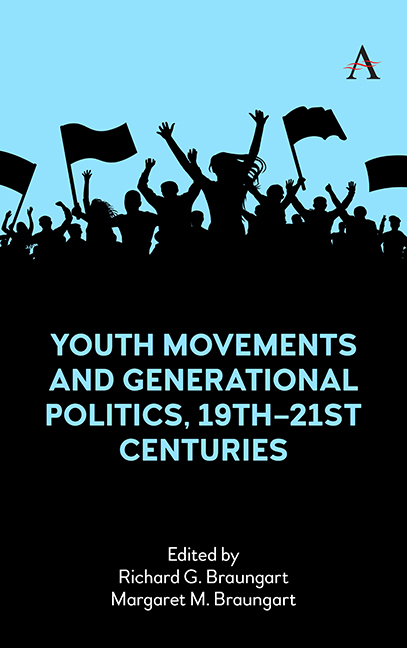14 - European Youth Movements in the 1980s: A Political Generational Perspective
Published online by Cambridge University Press: 18 November 2023
Summary
The purposes of this study are to assess the extent of youth movement activity in Western and Eastern Europe in the 1980s, and to interpret the youth movements from a political generational perspective. Based on information from news sources, books, and journals published between 1980–1990, the major European youth movements are listed by year of occurrence and country of origin. The findings of this study indicate that much of the youth movement activity in Western Europe took place during the early-to-mid 1980s, involving youth protests against environmental destruction, militarism, NATO, and the presence of U.S. nuclear missiles on European soil. In Eastern Europe youth movements peaked in the late 1980s over the issues of freedom, democracy, glasnost, and independence from Soviet Russian domination. University reform protests and the counterculture movements occurred in both Western and Eastern Europe throughout the 1980s. From a political generational perspective, the extensive youth movement activity, issues of protest, and existence of various life-course, cohort, and period effects within European youth movements suggest there were two extraordinary political generations in the 1980s—an earlier one in Western Europe and a later one in Eastern Europe.
Youth Movements
As far back as antiquity, young people have rebelled against their elders and acted out against society. Much of this rambunctious youthful activity represented brief episodes of collective behavior, and it was not until the early nineteenth century that full-fledged youth movements came into being, characterized by the organized efforts of young people to bring about political reform or revolution. At the root of youth movements is a shared perception by a critical mass of young people that traditional institutions, the political regime, and the implementation of a society's social and economic values are no longer legitimate or effective. As a result, youth take it upon themselves to protest against existing societal conditions and to change the political order.
The first youth movement (the Burschenschaft) occurred in 1815 at the University of Jena in the central German state of Weimar, followed by other youth movements throughout Europe, which, like the Burschenschaften, rejected absolutism in favor of the modern nation-state.
- Type
- Chapter
- Information
- Youth Movements and Generational Politics, 19th-21st Centuries , pp. 369 - 384Publisher: Anthem PressPrint publication year: 2023

